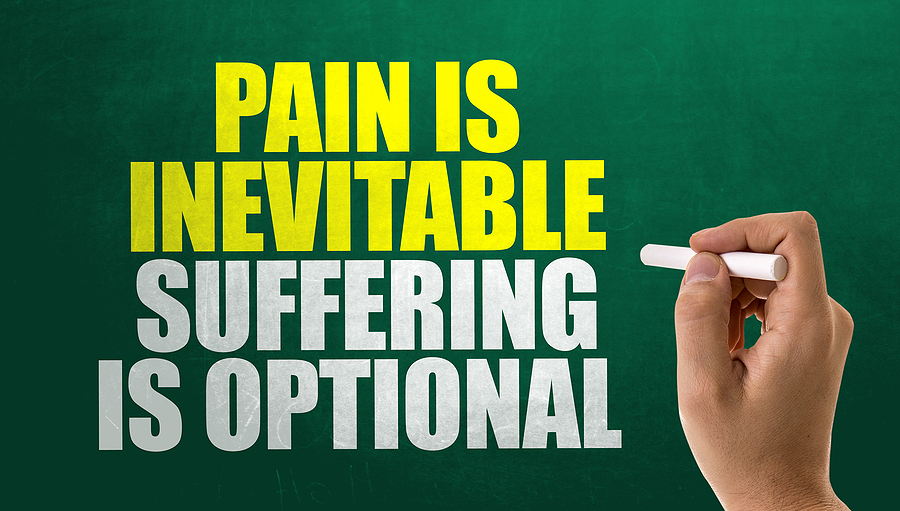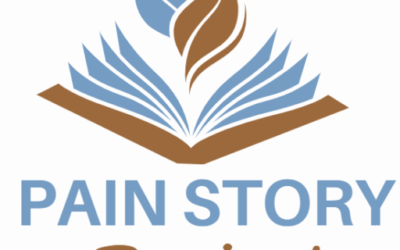Today’s U.S. presidential election is a top stressor for Americans. An American Psychiatric Association survey conducted last month found that nearly three-quarters of U.S. adults are anxious about the election results. With increased stress often comes increased pain, generally experienced as flare-ups of chronic conditions. This is a natural response to the universal worry we have about the fate of our country. As you hear the poll results come in, don’t be surprised if your pain grows with your uncertainty. This is expected–and you are not alone. As we elect our 47th president, I hope that on a personal and national level, we demonstrate acceptance and kindness, two practices that can also help reduce your stress and pain.
Acceptance Prevents Suffering
“Acceptance is the ability to actively embrace unwanted private experiences, including pain, thoughts, feelings, and memories, without attempting to change their frequency or form. Acceptance is not a passive process, nor does it imply giving in to the pain, resignation or tolerance. This is an active and open posture of curiosity and interest in our feelings, memories, bodily sensations and thoughts.” (Tatta, 2020, p. X)
This definition comes from Acceptance and Commitment Therapy, a treatment approach used for chronic pain. Notice that in the definition above, acceptance does not require that you approve of or are happy about the situation. It is possible to accept yet disagree. Further, acceptance does not mean that you do not care or have deep interest. Rather, you can accept and take action to create change.
However, if you do not accept the reality of a situation, you may suffer. This is the premise of The Work, created by Byron Katie, author of Loving What Is. She says, “All the stress that we feel is caused by arguing with what is.” Read more about Katie’s process in my blog: Transforming Your Limiting Beliefs.
This mentality of non-acceptance leading to suffering is captured in the popular saying shown above: Pain is Inevitable. Suffering is Optional. The reality is that everyone experiences pain in life. And regardless of the source of the pain (e.g., physical, emotional, or other), not accepting things as they are is what leads to suffering.
For instance, denying, ignoring, and trying to override physical pain is a form of non-acceptance that leads to suffering. I did all these things when I was experiencing pain. And I suffered. By continually wanting my situation to be different (no pain and unlimited activity), I was not accepting reality: I had pain and could not do all of the sports I wanted. Resisting this truth and mentally fighting against my situation was the source of my suffering.
It took me a long time to learn that you can have physical pain without mental suffering. And that you can accept the pain while at the same time work toward recovery. Accepting and validating the pain as it is, at this moment, is the first step to healing it and moving forward. That is why acceptance is the fifth and final stage of the grief cycle, which you can read more about in my book, Winning the Injury Game. Once we accept our pain, we can act with kindness.
Kindness Can Heal the Pain
It is on the days when your pain is high that you’ll most want to pamper yourself. If you criticize yourself and ignore your needs and feelings by pushing through the displeasure, your stress, pain, and suffering are likely to escalate. Your nervous system needs reassurance that all is okay and that you are not in imminent danger. It is during these times, when you are hurting and the world seems to be in chaos, that you’ll want to indulge in comfort and safety.
In a recent Mel Robbins podcast How to Reset Your Mind for Calm & Control, she talked about how seeking comfort is not weakness but rather helps us build strength and resilience. She would advise you to give yourself permission to cuddle with your pet, beloved stuffed animal, or favorite blanket today.
Comforting yourself is an expression of kindness. When you are kind to yourself, your nervous system relaxes. Your feeling of threat diminishes. The perceived danger (presidential election outcome), however, may remain. You may still not know who our next president will be, but your response to the situation has changed. Through your kind actions, you have turned down your stress response. By practicing comforting behaviors, your whole being now feels cared for and secure. Consequently, since the need for protection by pain is no longer required, the uncomfortable physical sensation should be reduced or completely resolved.
May acceptance and kindness prevail during today’s election and into the future.
Tatta, J. T. (2020). Radical relief: A guide to overcoming chronic pain. OPTP.



